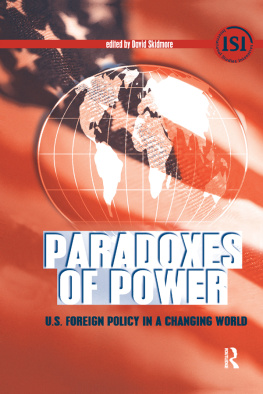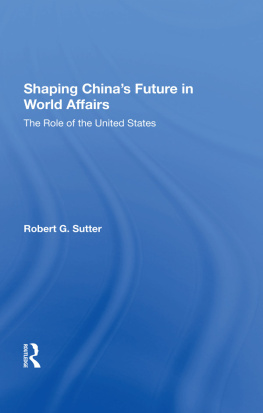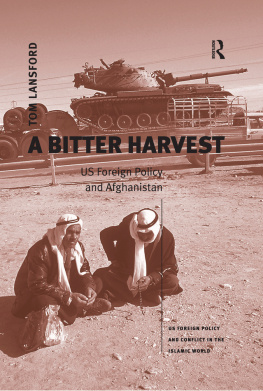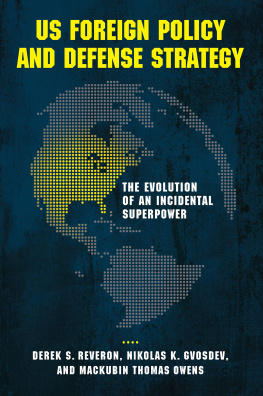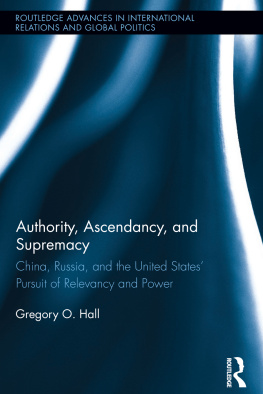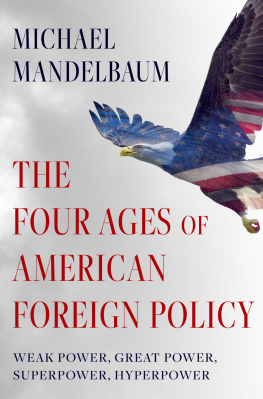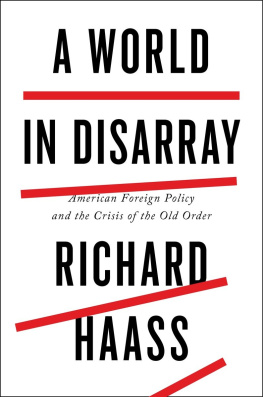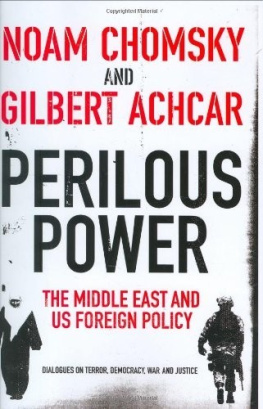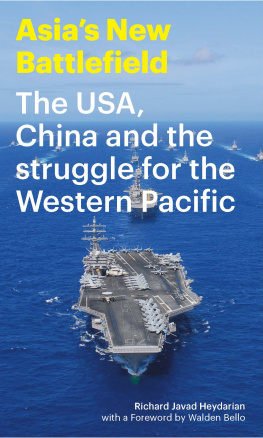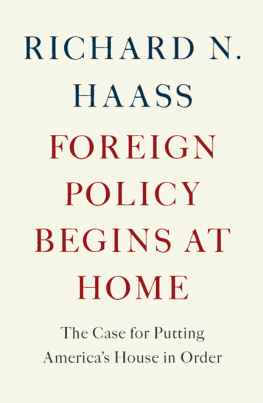PARADOXES OF POWER
International Studies Intensives (ISI) is a book series that springs from the desire to keep students engaged in the world around them. Books in the series address a wide array of topics in the international studies field, all devoted to getting students involved in the ways in which international events affect their daily lives. ISI books focus on innovative topics and approaches to study that cover popular and scholarly debates and employ new methods for presenting theories and concepts to students and scholars alike. ISI books pack a lot of information into a small spacethey are meant to offer an intensive introduction to subjects often left out of the curriculum. ISI books are relatively short, visually attractive, and affordably priced.
Editorial Board
Robin Broad, American University
Michael Butler, Clark University
Dan Caldwell, Pepperdine University
Mary Caprioli, University of Minnesota, Duluth
Robert Denemark, University of Delaware
A. Cooper Drury, University of MissouriColumbia
Doug Foyle, Wesleyan University
H. Richard Friman, Marquette University
Jean Garrison, University of Wyoming
Vicki Golich, California State University San Marcos
Jeffrey Hart, Indiana University
Shareen Hertel, University of Connecticut
Jeanne Hey, Miami University
Steve Hook, Kent State University
Valerie Hudson, Brigham Young University
David Kinsella, Portland State University
Robert Kudrle, University of Minnesota
Lynn Kuzma, University of Southern Maine
Steve Lamy, University of Southern California
Jeffrey Lantis, College of Wooster
James McCormick, Iowa State University
James Mittelman, American University
Steven C. Poe, University of North Texas
Lisa Prugl, Florida International University
Paul Sharp, University of Minnesota, Duluth
David Skidmore, Drake University
Jennifer Sterling-Folker, University of Connecticut
Emek Ucarer, Bucknell University
Jonathan Wilkenfeld, University of Maryland
Titles in the Series
Paradoxes of Power: U.S. Foreign Policy in a Changing World
edited by David Skidmore
The Rules of the Game: A Primer on International Relations
by Mark R. Amstutz
A Tale of Two Quagmires: Iraq, Vietnam, and the Hard Lessons of War
by Kenneth J. Campbell
First published 2007 by Paradigm Publishers
Published 2016 by Routledge
2 Park Square, Milton Park, Abingdon, Oxon OX14 4RN
711 Third Avenue, New York, NY 10017, USA
Routledge is an imprint of the Taylor & Francis Group, an informa business
Copyright 2007, Taylor & Francis.
All rights reserved. No part of this book may be reprinted or reproduced or utilised in any form or by any electronic, mechanical, or other means, now known or hereafter invented, including photocopying and recording, or in any information storage or retrieval system, without permission in writing from the publishers.
Notice:
Product or corporate names may be trademarks or registered trademarks, and are used only for identification and explanation without intent to infringe.
Library of Congress Cataloging-in-Publication Data
978-1-59451-402-9 (cloth: alk. paper)
978-1-59451-403-6 (pbk.: alk. paper)
Typeset by Mulberry Tree Enterprises.
ISBN: 13: 978-1-59451-402-9 (hbk)
ISBN: 13: 978-1-59451-403-6 (pbk)
Contents
Part I
U.S. Dominance and Its Limits
Stephen G. Brooks and William C. Wohlforth
Joseph S. Nye Jr.
Michael Mandelbaum
Christopher Layne
James F. Hoge Jr.
Part II
An American Empire?
John B. Judis
Paul W. Schroeder
Andrew J. Bacevich
Michael Ignatieff
Max Boot
Niall Ferguson
Part III
Strategic Choice:
Unilateralism or Multilateralism?
Charles Krauthammer
Francis Fukuyama
Ralph G. Carter
G. John Ikenberry
Part IV
Attitudes toward American
Power at Home and Abroad
Minxin Pei
Robert Kagan
Todd S. Sechser
Pew Global Attitudes Project
Stephen M. Walt
Part V
Case Studies in U.S. Grand Strategy:
The War against Terrorism and
the Invasion of Iraq
The White House
Christopher Hitchens
G. John Ikenberry
Robert F. Ellsworth and Dimitri K. Simes
Jeffrey Record
Philip H. Gordon
This volume addresses the intersection of power and purpose as they relate to U.S. foreign policy in a changing world. The United States today possesses clear military superiority over its nearest rivals. America remains the central player in the world economy, with 5 percent of the worlds population accounting for over one quarter of global output. The spread of American cultural symbols and fashions is reshaping societies the world over. In short, the United States is currently the worlds sole superpower.
Yet power gives rise to a distinctive set of conundrums that lead to some paradoxical answers. How long before American dominance fades? To what purposes should American power be put? Should the United States seek to strengthen international institutions as lasting mechanisms for global cooperation? Or should America retain the freedom to act alone when its interests so dictate? Do other states and peoples view American hegemony in benign terms or does U.S. power inevitably prompt fear, distrust, and resentment? Does power ensure security or merely heighten the risks of entanglement abroad and growing vulnerability? In the end, what choices do Americans face in seeking to craft a more stable world order at a moment when the United States enjoys international supremacy of uncertain duration and consequence?
These questions have risen in salience since the tragic events of 9/11 and the commitment of U.S. military forces in Afghanistan and Iraq, and they have stimulated wide-ranging debate among knowledgeable observers over the basic contours of U.S. foreign and national security policy. This volume assembles some of the best essays written on these topics by a uniquely qualified set of authors. This book is aimed principally at students in courses on world politics and U.S. foreign policy, yet this collection should be of great interest to any citizen who seeks to better understand Americas role in the world during a time of great challenges and changes.
Paradoxes of Power: U.S. Foreign Policy in a Changing World

